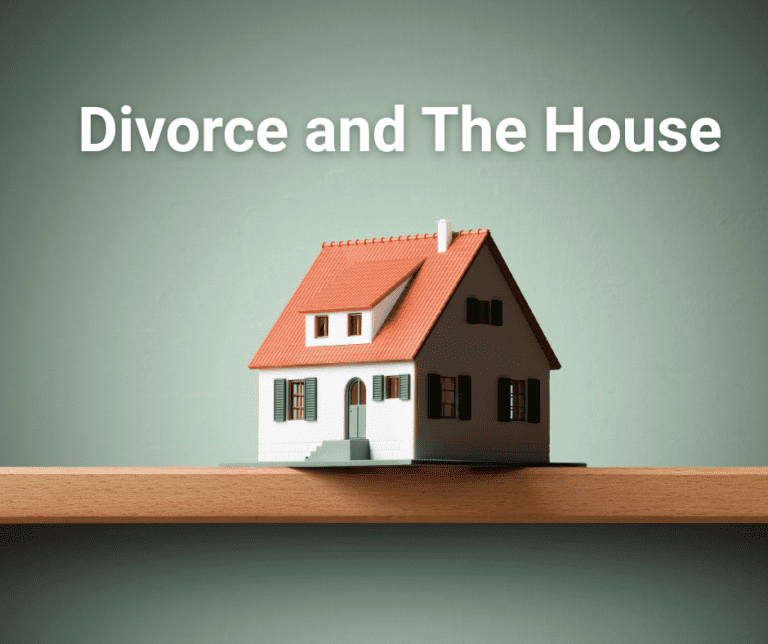Unemployed and Want a Divorce? Here’s What You Need to Know

Losing a job and facing the resulting money challenges can stress even the best marriages, and stressed marriages often lead to one or both parties contemplating divorce. But should you get divorced if you’re unemployed? Money troubles aside, staying in a bad marriage isn’t your only option. Here’s what you need to know if you are unemployed and want a divorce.
Divorce Doesn’t Have to Be as Expensive
Many women and men stay in unhappy marriages because they think they can’t afford to get divorced, and often have a hard time starting the process when they see the price tag attached. The legal website, Nolo, found that the average cost of divorce was $12,900.
Yikes! That’s a lot of money, but if you look at the breakdown, you’ll find that $11,300 of that cost was for attorney’s fees.
Divorce doesn’t have to be expensive as long as you limit your use of lawyers and avoid going to court. (Nolo found that the average cost of divorce rockets up to $20,379 for couples who have to go to trial.) If you choose mediation, you may be looking at a much more reasonable cost of $500 – $1,500.
The cheapest way to get divorced is to agree to an uncontested divorce and devise a settlement agreement directly with your spouse. This outcome won’t work for everyone, especially if you and your spouse have can’t stand each other. However, if you and your spouse haven’t been married long, don’t have a lot of assets to divide, and don’t have major disagreements (like child custody), an uncontested divorce could be a good option for you.
Receiving Spousal Support
If you aren’t working and can prove that you are struggling to find a job, a judge may find that your spouse owes you monthly spousal support (previously known as alimony). You are more likely to receive spousal support the longer you’ve been married and if you’ve been out of work for a while (such as for the purpose of raising children).
If your spouse can successfully argue that you are likely to quickly be re-employed, a judge may not grant spousal support or may limit the length of time you receive support.
Paying Spousal Support and/or Child Support?
What happens if you were the higher-earning spouse for most of your marriage and now your spouse wants spousal support and/or child support? If you and your spouse can’t come to an agreement through mediation, your spouse can petition the court for spousal support and/or child support. You will have to convincingly argue that you cannot pay what your spouse asks for.
The judge will consider the unique details of your situation before making a ruling.
If and when you do find a job—especially if you earn a lot more than your spouse—your spouse can petition the court later to ask for more spousal support and/or child support in light of your new financial situation.
Special Advice: Some resentful spouses may think that quitting their job or making no effort to find a job after being let go is a great way to get back at their spouse.
Don’t do this. Seriously. If the judge suspects you voluntarily became unemployed or are voluntarily remaining unemployed, they could penalize you even more when they find in your spouse’s favor and order you to pay spousal support and/or child support.
The House
Before you make your divorce decision, take a moment to consider what your living situation might be like after your divorce. If you want to keep the house, how will you cover the mortgage or rent payments without any income?
If you want the house in your name, you’ll need to refinance to get your spouse’s name off the deed. Most banks won’t give you a new home loan if you can’t show steady income unless you have a significant amount of assets.
You may face that same problem if you decide to move out and look for new housing. Banks and landlords are usually leery of would-be homeowners or renters without a job. (Here’s how to buy a home after a divorce.)
That doesn’t mean you shouldn’t get divorced. Consider all of your options: Do you have a family member you can live with until you find employment? Can you and your soon-to-be ex-spouse agree to live together while separated? If neither of those are options, take the next few months to save for a deposit and at least the first two months rent on an apartment to give yourself time to find a job and give your new landlord security that you’ll pay.
Health Insurance
For many, the loss of a job also means the loss of health insurance. Normally, you may be able to switch to your spouse’s policy, but a divorce will cut off that avenue. If you were already on your spouse’s health insurance policy, you can keep your same policy for up to 36 months through COBRA, but you’ll have to pay for the policy cost out of pocket. For many, that expense can be very high.
Another option is to buy private insurance through your state’s healthcare exchange or the federal exchange. Depending on where you live, you may qualify for subsidies to help you afford your policy. If you are truly in need, you may qualify for your state’s Medicaid coverage.
Keep Paying Your Bills
Though money will likely be tight while you face divorce and unemployment, try your best to keep up with your expenses, even if that means paying the minimum balance on your debts. Many employers look into the financial history of their job candidates. If you have overdue payments or a bankruptcy in your recent past, you could lose out on good job opportunities.
Should You Get Divorced Without a Job?
Going through a divorce will be a financially and emotionally draining experience. It will be even tougher if you don’t have a job. Think long and hard before you make the decision to get divorced, especially at a time when you don’t have a steady income. In some cases, especially if your spouse is abusive, a divorce will still be the right call. To get the information you need to make the right decision for you, find a Second Saturday Divorce Workshop near you.






